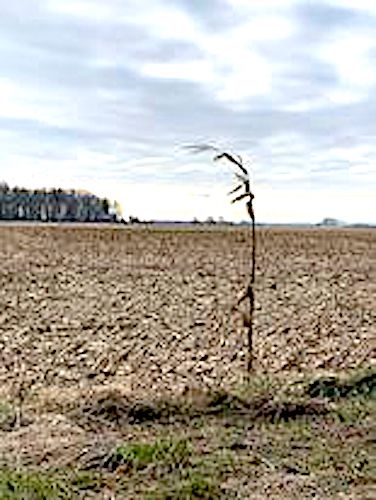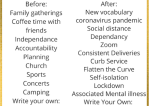I attended a Zoom photography workshop last spring. I’m not a photographer, but I love pictures. What I learned during the three sessions was to watch for what I almost missed. Sounds contradictory, doesn’t it? Kim McKellar suggests in her poetry, “I took a photo but didn’t see you little bird, I’d focussed on a sassy Jay . . . our tools in life for survival ‘sometimes feather soft but oh so very strong, like kindness, like hope, like love.’ That is vitalizing advice for those among us who grieve.
In this year, 2020, there have been many experiences and layers of grief. Some may take a lifetime to understand, define and to process our thoughts. This is world-wide, among the rich and the poor, the accepted and the rejected – we all stand together.

What do you think of when you look at this photograph. This tall sentinel grabs my attention. I think of loneliness, rejection or being left behind. Maybe the phrase, “Now what? Or why me?” comes to mind. After I looked at this lone corn stalk for a moment, I began to see other areas of the picture, a bush standing tall waiting for spring, a beautiful field pausing, and the grass along the bottom. It is not bright, easily missed, but it’s green, alive. It won’t keep its colour through the harsh days of Southern Ontario’s winter. But, it’ll be the first of everything else to boast a kaleidoscope of green across the headland as it spreads and strengthens with rain and sunrays.
Yes, the old revived, and the new will take root. We will walk into 2021, scarred by the losses of 2020, but with a new vision and interpretation of what waits there for us.
Photograph: Sarah Runstadtier-Auld Quote: Kim McKellar (What the Earth Already Knows, May 2020)

 was just before Christmas. No, that didn’t make it more difficult. If anything, the joy of new life was alive around
was just before Christmas. No, that didn’t make it more difficult. If anything, the joy of new life was alive around 








